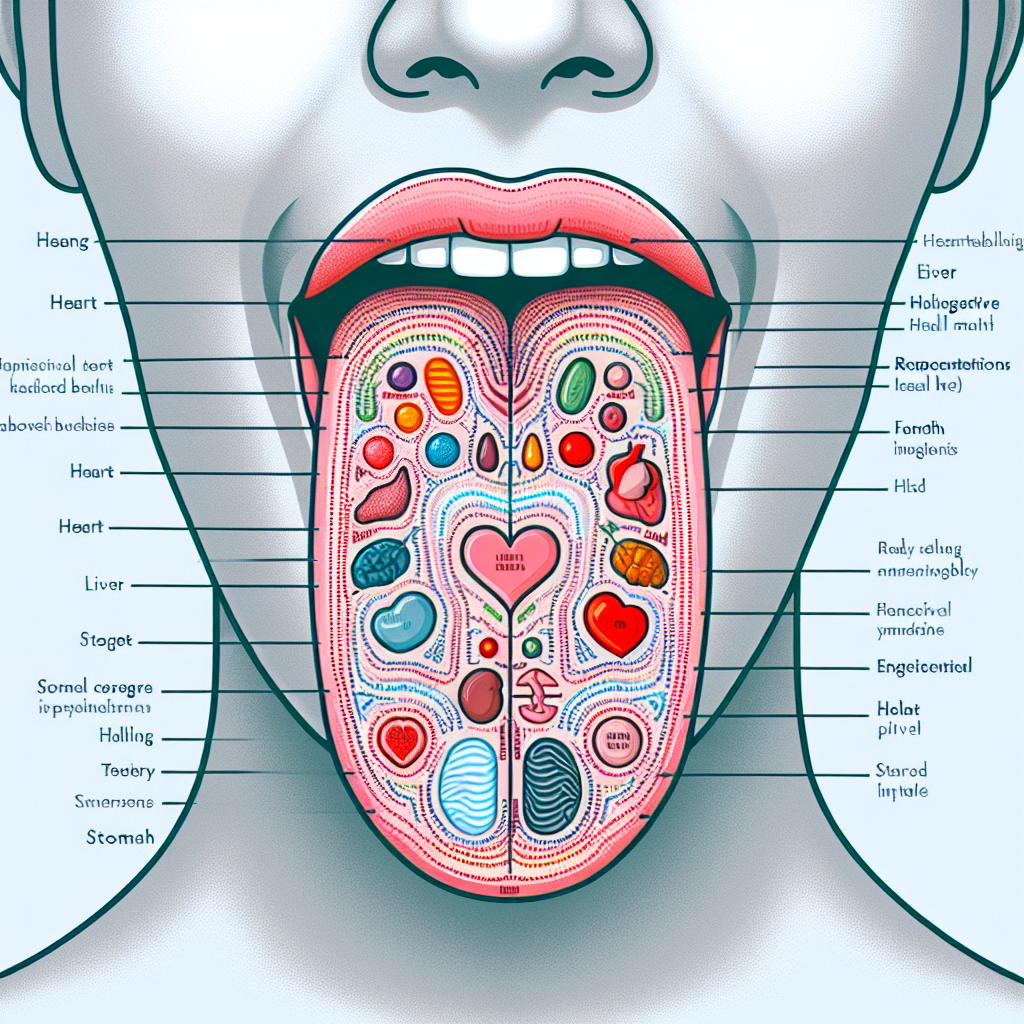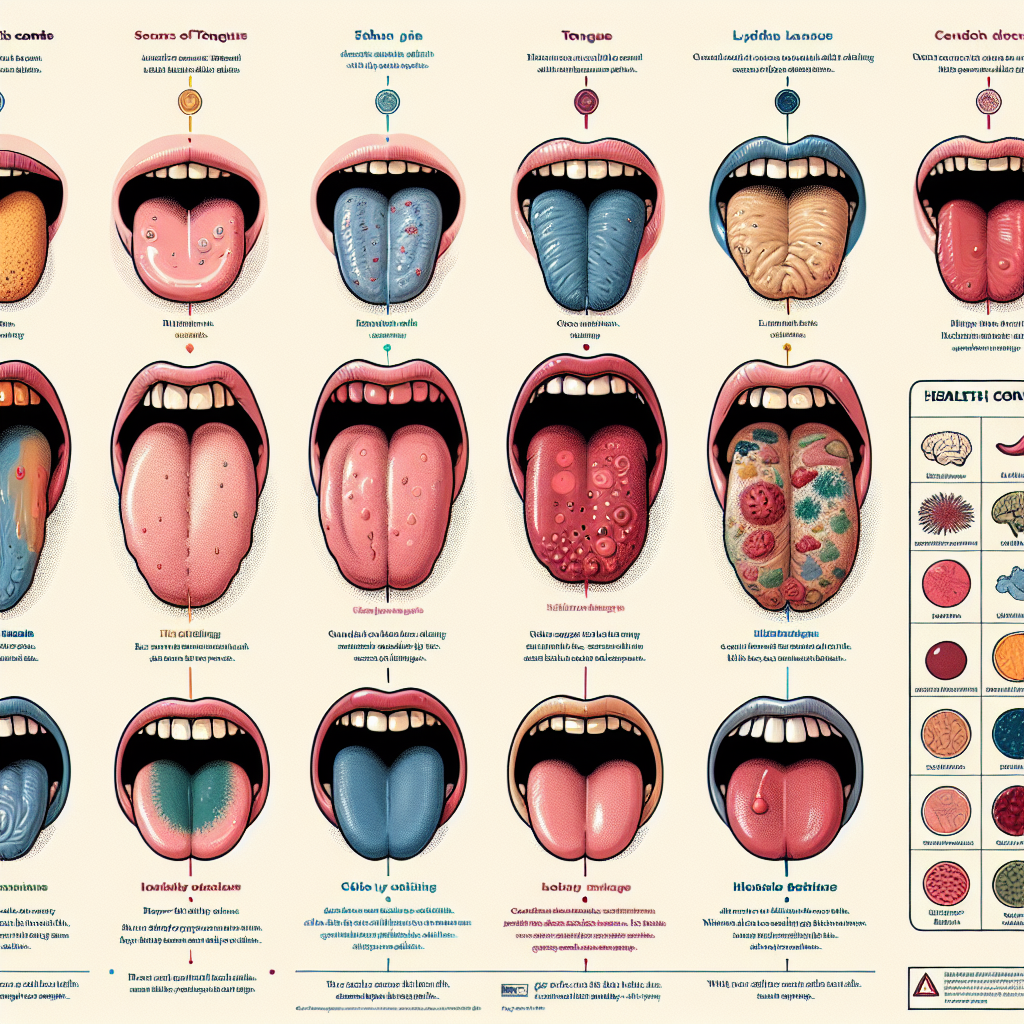What Your Tongue Says About Your Health

Discover what your tongue says about your health! Your tongue can reveal signs of illness or deficiencies that you may not be aware of. Learn more about this fascinating topic and take control of your health today. Click here to find out more.
Understanding Health Indicators: What Your Tongue Reveals
Your tongue, often overlooked, is a vital organ that not only aids in speech and food consumption but also serves as a window to your overall health. It can reveal signs of nutritional deficiencies, systemic diseases, and even your hygiene habits. Understanding the health indicators your tongue reveals can be a crucial step in early detection and treatment of various health conditions.
The tongue’s color, texture, and coating can provide valuable insights into your health. A healthy tongue is typically pink with a thin, white coating. Any deviation from this norm may indicate an underlying health issue. For instance, a bright red tongue could be a sign of vitamin B12 or iron deficiency, leading to anemia. On the other hand, a pale tongue might suggest a blood deficiency or a lack of vital nutrients in your diet.
The texture of your tongue also speaks volumes about your health. A smooth, glossy tongue might indicate a deficiency in essential nutrients like iron, folate, or vitamin B12. Conversely, a tongue with a thick, white coating could be a sign of oral thrush, a yeast infection that can occur in individuals with weakened immune systems. A tongue with a bumpy or ridged surface might suggest a condition known as geographic tongue, which, while usually harmless, can sometimes indicate psoriasis or a vitamin deficiency.
Moreover, the coating on your tongue can reveal a lot about your oral hygiene. A healthy tongue should have a thin, white coating. However, a thick, white, or yellowish coating could indicate poor oral hygiene or a proliferation of bacteria and yeast in the mouth. This could lead to bad breath and other oral health problems if not addressed promptly.
Pain or discomfort in the tongue can also be a sign of underlying health issues. Persistent tongue pain could be a symptom of oral cancer, especially if accompanied by other symptoms like a persistent sore throat or difficulty swallowing. On the other hand, a burning sensation in the tongue, known as burning mouth syndrome, could be a sign of nerve damage or hormonal changes.
Lastly, your tongue can also reveal signs of systemic diseases. For instance, a condition known as oral lichen planus, characterized by a network of raised white lines on the tongue, could be a sign of a compromised immune system. Similarly, a condition known as black hairy tongue, characterized by a dark, furry appearance of the tongue, could indicate diabetes or poor oral hygiene.
In conclusion, your tongue is a powerful diagnostic tool that can reveal a lot about your overall health. Regular self-examinations of your tongue can help you detect any abnormalities early and seek medical attention promptly. However, it’s important to remember that while your tongue can provide valuable health insights, it should not replace regular check-ups with your healthcare provider. Always consult a healthcare professional if you notice any changes in your tongue or if you have any health concerns. Your tongue has a lot to say about your health, so it’s time we started listening.
Decoding Your Health: The Role of Your Tongue in Diagnosis

Your tongue, often overlooked, plays a crucial role in your overall health. It is not just a muscular organ that aids in speech, taste, and digestion, but it also serves as a window to your body’s health. The color, texture, and coating of your tongue can provide valuable clues about your well-being. This article will delve into the fascinating world of tongue diagnosis and how it can help decode your health.
The practice of tongue diagnosis has been a cornerstone of traditional Chinese medicine for thousands of years. It is based on the belief that different areas of the tongue correspond to different organs in the body. For instance, the tip of the tongue is linked to the heart and lungs, while the back is associated with the kidneys, bladder, and intestines. Therefore, any changes in these areas of the tongue could indicate an issue with the corresponding organ.
A healthy tongue is typically pink with a thin, white coating. If your tongue is a different color, it could be a sign of an underlying health issue. For example, a red tongue might indicate heat or inflammation in the body, while a pale tongue could suggest a deficiency in blood or energy. A purple tongue might be a sign of stagnation in the body, such as poor circulation, while a blue or black tongue could indicate a severe health problem and requires immediate medical attention.
The texture of your tongue can also reveal a lot about your health. A smooth, glossy tongue might indicate a deficiency in nutrients or iron, leading to conditions like anemia. On the other hand, a tongue with cracks or fissures could suggest a chronic condition, such as an autoimmune disease. If your tongue has a thick coating, it might be a sign of an excess of toxins or dampness in the body. A peeled or patchy coating could indicate a deficiency in the stomach’s protective lining.
Moreover, any changes in the shape of your tongue can also provide clues about your health. A swollen tongue might suggest a deficiency in spleen energy, leading to water retention, while a thin, narrow tongue could indicate dehydration or malnourishment. If your tongue has teeth marks around the edges, it might be a sign of a weak spleen or stomach, leading to poor digestion and absorption of nutrients.
It’s important to note that while tongue diagnosis can provide valuable insights into your health, it should not replace conventional medical diagnosis and treatment. If you notice any changes in your tongue, it’s always a good idea to consult with a healthcare professional. They can provide a comprehensive evaluation and guide you on the appropriate course of treatment.
In conclusion, your tongue is a powerful diagnostic tool that can help decode your health. By paying attention to the color, texture, and shape of your tongue, you can gain valuable insights into your well-being. So, the next time you brush your teeth, take a moment to examine your tongue. It might just have something important to say about your health.
The Tongue as a Health Barometer: What It Tells About Your Well-being
The human body is a marvel of interconnected systems, each playing a crucial role in maintaining overall health. One such system, often overlooked, is the oral cavity, specifically the tongue. The tongue, beyond its role in speech and food consumption, can serve as a health barometer, providing valuable insights into your well-being.
The tongue’s appearance, including its color, texture, and coating, can reveal a lot about your health. A healthy tongue is typically pink, with a thin white coating, and small nodules known as papillae. Any deviation from this norm may indicate an underlying health issue.
For instance, a bright red tongue could be a sign of vitamin B12 or iron deficiency. These deficiencies can lead to anemia, a condition characterized by a lack of healthy red blood cells. A red tongue could also indicate a high fever or strep throat, especially in children.
On the other hand, a white-coated tongue may suggest a yeast infection, known as oral thrush. This condition is common in infants, the elderly, and individuals with weakened immune systems. A white tongue can also be a symptom of dehydration or poor oral hygiene.
Moreover, a tongue with a yellowish hue might indicate a problem with the gallbladder or liver, as these organs help to filter toxins and bilirubin, a yellow compound, from the body.
The texture of the tongue can also provide clues about your health. A smooth, glossy tongue can be a sign of various nutritional deficiencies, such as folic acid and vitamin B12. In contrast, a tongue with a rough or furry appearance might suggest poor oral hygiene or a condition known as hairy tongue.
Furthermore, the tongue can reveal signs of more serious health conditions. Persistent red or white lesions on the tongue could be indicative of oral cancer, especially if accompanied by pain or difficulty swallowing.
In addition to its appearance, the tongue can also provide insights into your health through its sensations. A burning sensation on the tongue, known as burning mouth syndrome, can be a symptom of various conditions, including hormonal imbalances, nerve damage, or certain allergies.
It’s important to note that while the tongue can serve as a health barometer, it should not be used as a standalone diagnostic tool. Many tongue abnormalities are harmless and temporary, often resolving on their own without treatment. However, if you notice persistent changes in your tongue’s appearance or sensation, it’s advisable to seek medical attention.
In conclusion, the tongue is more than just a muscular organ used for tasting and swallowing. It can serve as a window into your overall health, revealing potential deficiencies, infections, and even more serious conditions. By paying attention to your tongue, you can gain valuable insights into your well-being and take proactive steps towards maintaining good health. Remember, your tongue might be trying to tell you something, so don’t ignore its message.